Interview: Jared Mezzocchi's Guided Tour Thru His & SOMEONE ELSE'S HOUSE
Geffen Stayhouse’s sixth virtual production Jared Mezzocchi’s SOMEONE ELSE’S HOUSE world premieres April 30, 2021.
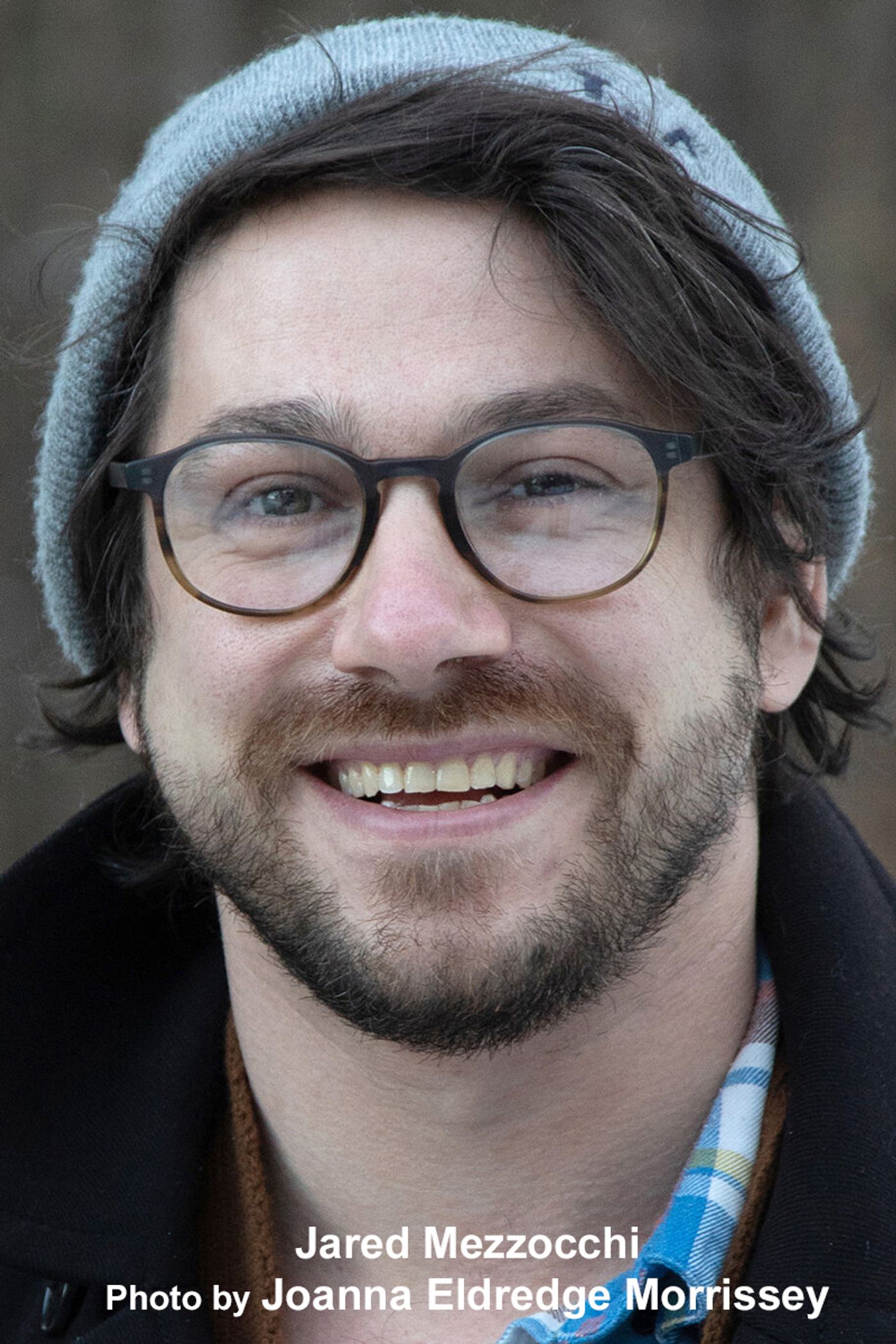
Geffen Stayhouse's sixth virtual production Jared Mezzocchi's SOMEONE ELSE'S HOUSE world premieres April 30, 2021. This live, virtual, and interactive theatrical experience was written and will be performed by Jared. Based on the true-life haunting encounters of generations of his family living in New England, the Zoomed audience will follow along with Jared narrating his family histories using the "haunting kits" pre-mailed before their reserved performance.
Jared managed to squeeze in some time between previews to answer a few of my inquiries.
Thank you taking the time for this interview, Jared!
What prompted you to start writing this true-life story of your family's experiences?
If you know me and my original work, you know that I always begin my writing from a deeply personal space. It stems from one of my first works, THE ONE STOPLIGHT IN HOLLIS, which I wrote a year after my father passed, and was based on the eulogy I gave at his funeral. Since then, I've always seen playwriting as a form of meditation and self-discovery. To me, it's the most authentic I can be as an artist, processing in real-time. While this is a story that is based on my family's experience, you'll notice it is from my perspective as a son/brother trying to understand my place within the family. While this is my family's experience before I was born, I have found my way in through researching the information and history around these events. As the youngest child (14 years difference!), I've always sought to be more collaborative and included into my older siblings' relationships. Particular to SOMEONE ELSE'S HOUSE, I have become obsessed with the history and it's deepening my relationship to my family.
Did you yourself witness all the terrifying goings-on? Or were they passed on from generations of relatives?
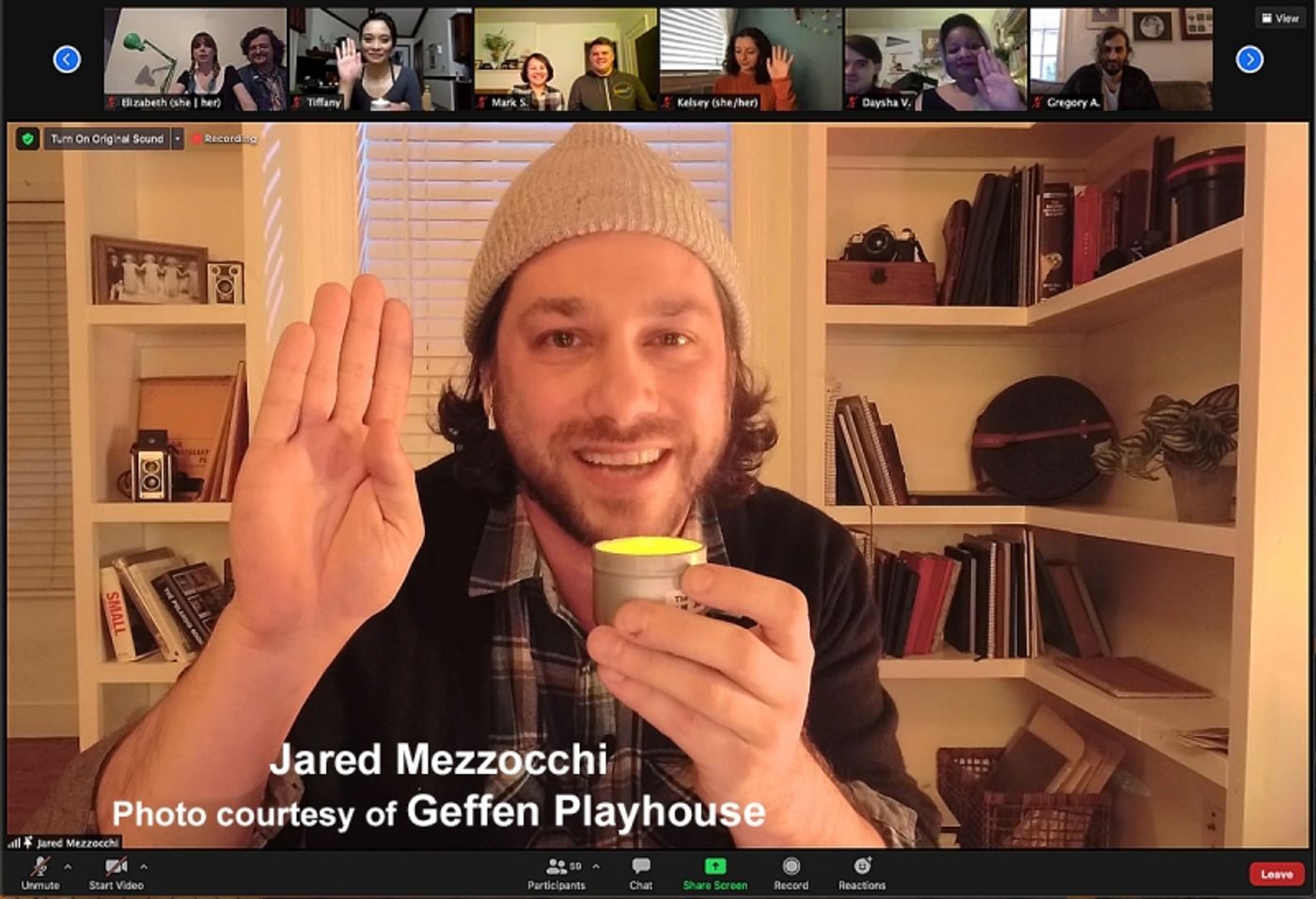 This is a two-fold answer. First, this happened before I was born. So no, I did not witness any of the events. However, growing up - these stories were deeply engrained into my childhood. All of my friends know these stories intimately because my mom and dad would notoriously tell them at birthday parties. But the spectacle of it always felt jarring, because of how completely terrifying the actual events were. So, after Geffen committed to the idea, I began researching the history of the house and the inhabitants. Without getting into it, I'll just say the parallels are incredible.
This is a two-fold answer. First, this happened before I was born. So no, I did not witness any of the events. However, growing up - these stories were deeply engrained into my childhood. All of my friends know these stories intimately because my mom and dad would notoriously tell them at birthday parties. But the spectacle of it always felt jarring, because of how completely terrifying the actual events were. So, after Geffen committed to the idea, I began researching the history of the house and the inhabitants. Without getting into it, I'll just say the parallels are incredible.
Would you explain how your SOMEONE ELSE'S HOUSE audience interacts and participates?
I mean, I'm still in the discovery process with all of the history of the house and the family, so in a way I am asking the audience to join me in sleuthing. My research is still developing, which I hope contributes to the immediacy of the story. The audience looks at the information I present and helps me scratch at the unexplainable.
What cosmic forces brought you together with the Geffen?
The pandemic! I have been amazed by the programming that the Geffen has been producing, and after I finished a few projects of my own - including RUSSIAN TROLL FARM written by Sarah Gancher that I co-directed with Elizabeth Williamson - they asked to meet and talk about ideas. The meeting was scheduled while I was in residency at MacDowell in Peterborough, New Hampshire, which is notoriously full of skeletons in the woods of New England. It was the middle of the night, during a pandemic. So when I opened up my journal and started to powerwrite about all of the ideas that I might want to discuss, I was thinking about mortality and the trauma around the pandemic. I texted my agent, Di Glazer, and almost immediately mentioned ghosts. Ghost stories exemplify the resiliency of humans (we j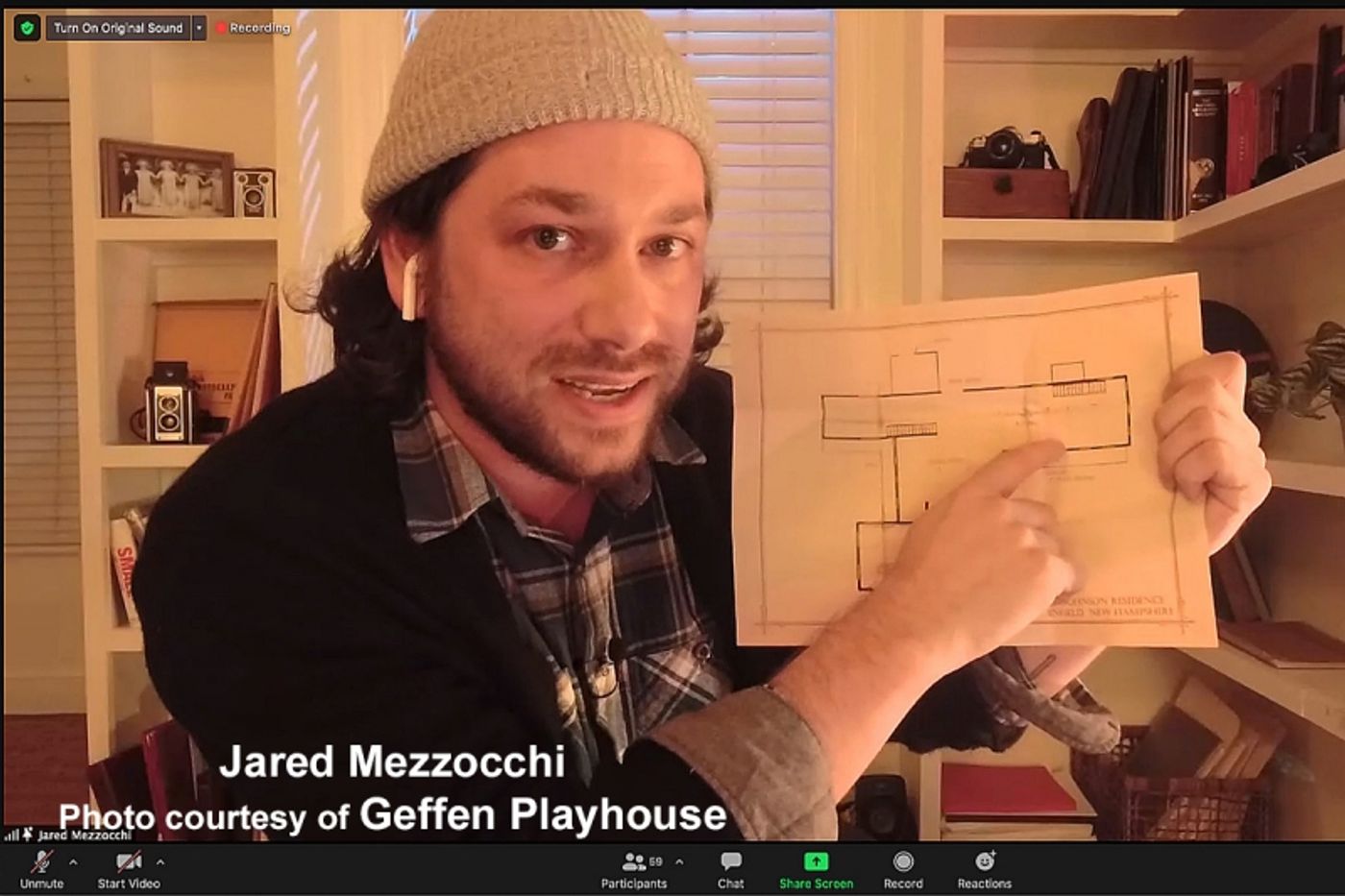 ust won't let go!). Also, the ghosts in the woods at MacDowell surrounded me, inspired me, and told me to keep my ideas in New Hampshire. Then I thought about my family and this story from northern NH. When I met with Amy Levinson and Rachel Wiegardt-Egel, they asked me to tell them the story and what I had been researching about those events. Rachel asked what I thought about being the storyteller, to hold on to the authenticity (which, as I mentioned in the first question, is deeply important to me). The rest is, literally and figuratively, history.
ust won't let go!). Also, the ghosts in the woods at MacDowell surrounded me, inspired me, and told me to keep my ideas in New Hampshire. Then I thought about my family and this story from northern NH. When I met with Amy Levinson and Rachel Wiegardt-Egel, they asked me to tell them the story and what I had been researching about those events. Rachel asked what I thought about being the storyteller, to hold on to the authenticity (which, as I mentioned in the first question, is deeply important to me). The rest is, literally and figuratively, history.
Have you worked with your director Margot Bordelon before?
Margot directed a workshop that I was a designer on several years ago. I loved her process and the way she approached theater-making. She's incredibly bold and fills the room with such grace and inspiration. I also saw her post on Facebook last fall, asking for ghost stories that she could use as inspiration for a class she was teaching. So, oddly, I told her this story months before the Geffen approached me. Because of this, she had been inadvertently preparing months in advance! Also, working with her on a full production only solidifies my admiration of her as an artist and leader. She's amazing and it was just super easy to trust her with this personal piece.
You have a lengthy and impressive resume as a theatre projection designer. Is SOMEONE ELSE'S HOUSE your first foray into playwriting?
I actually have been writing my whole life. For the last eleven years, I've written a play every summer for Andy's Summer Playhouse in Wilton, NH. I was child actor there growing up, and have recently become Artistic Director there six years ago. Andy's has been such an incredible incubator space for me. It's allowed me to try out ideas in really collaborative ways. Also, in 2018, I wrote and directed HOW TO CATCH A STAR, adapted from the book by Oliver Jeffers, at The Kennedy Center - within their Family Theater. So while it's been peripheral to my career as a projection designer, it's been constant. I consider myself a multimedia creator - writing, directing, designing, and acting are all a part of my experimenting within this particular discipline.
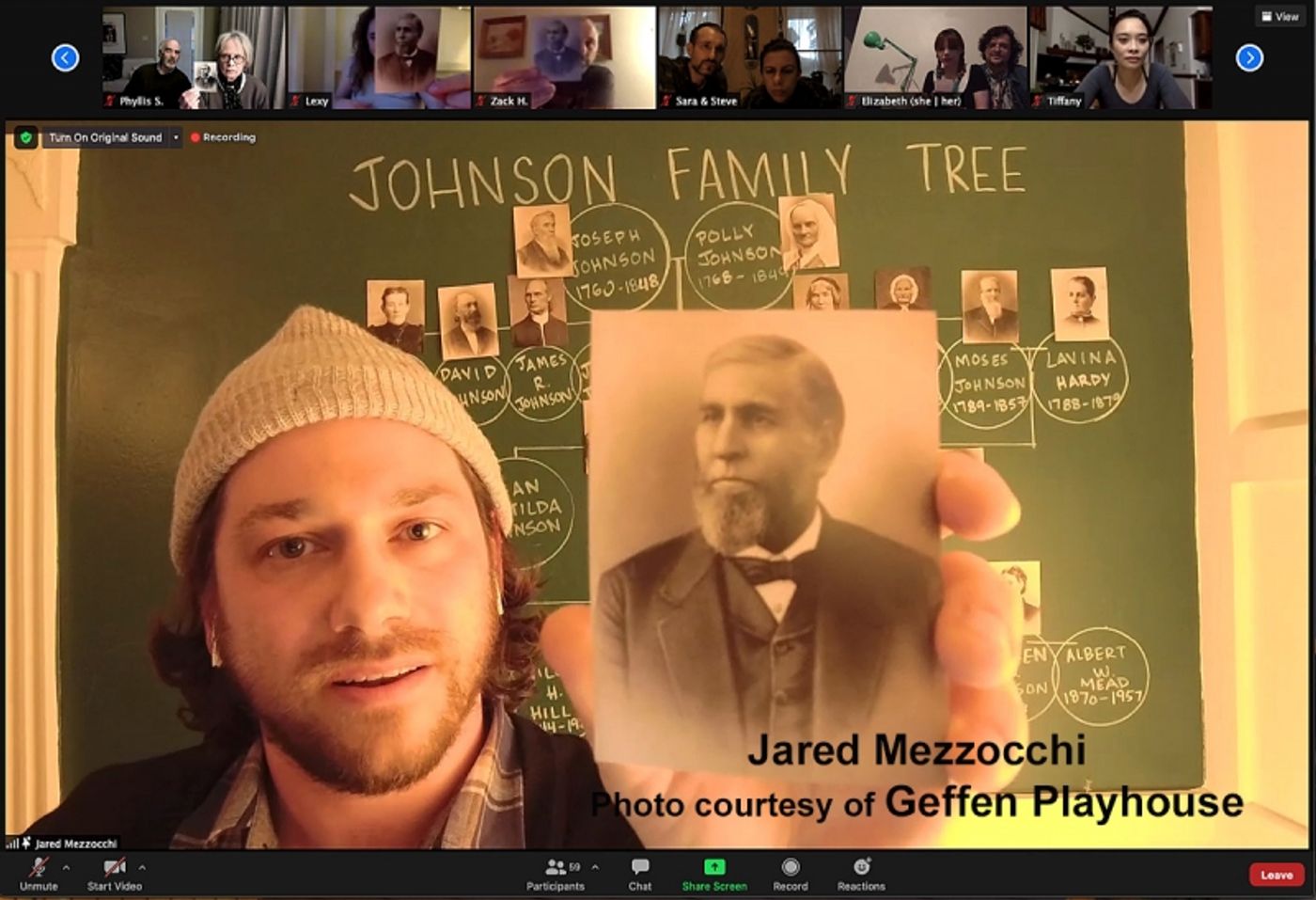 What gives you more gratification: designing a projection pre-show? Directing? Or actually performing on stage during?
What gives you more gratification: designing a projection pre-show? Directing? Or actually performing on stage during?
Directing and acting. Again, I am deeply invested in creating work that combines humans and technology together into a singular story. I think, as technology saturates our culture, it's important to examine human behavior within technological landscapes. This is not to become a spectacle, but instead become more human in control of their technological extension of self. As a director, I've loved holding rooms with grace and patience as we explore this interactivity. As an actor, it's been a total joy to swim in the technological ocean as opposed to just be a lifeguard on the beach. It's provided me a whole new vantage point at the tail end of the pandemic (and revitalized emergence of virtual theater) as we all have been forced into a truly unique digital performance space. I hope this acting experience strengthens my leadership as a director, writer and designer. It all feels very cyclic as a generative multimedia artist.
In 2017, you won an Obie Award, a Lucille Lortel Award and a Henry Hewes Award for your projection design on Qui Nguyen's VIETGONE at the Manhattan Theatre Club. Any one award stand out amongst the others?
The Obie is the most humbling. To be recognized by your peers, like that is better than anything in the world. Full stop.
What sparked your creation of your Virtual Design Collective (ViDCo)?
Out of necessity, actually. As we were wrapping up our digital season at Andy's Summer Playhouse, I started to output a daily experiment on social media. These experiments explored ways I could use the software Isadora over Zoom. I restricted myself to thirty minutes a day to generate an idea that was performed and recorded in real-time. About a week into posting these experiments, my inbox started to explode. Artists, producers, actors, designers, directors, and playwrights were reaching out wanting to know more and was asking me to help them realize their ideas over a digital platform. This led me to begin holding space over Zoom to 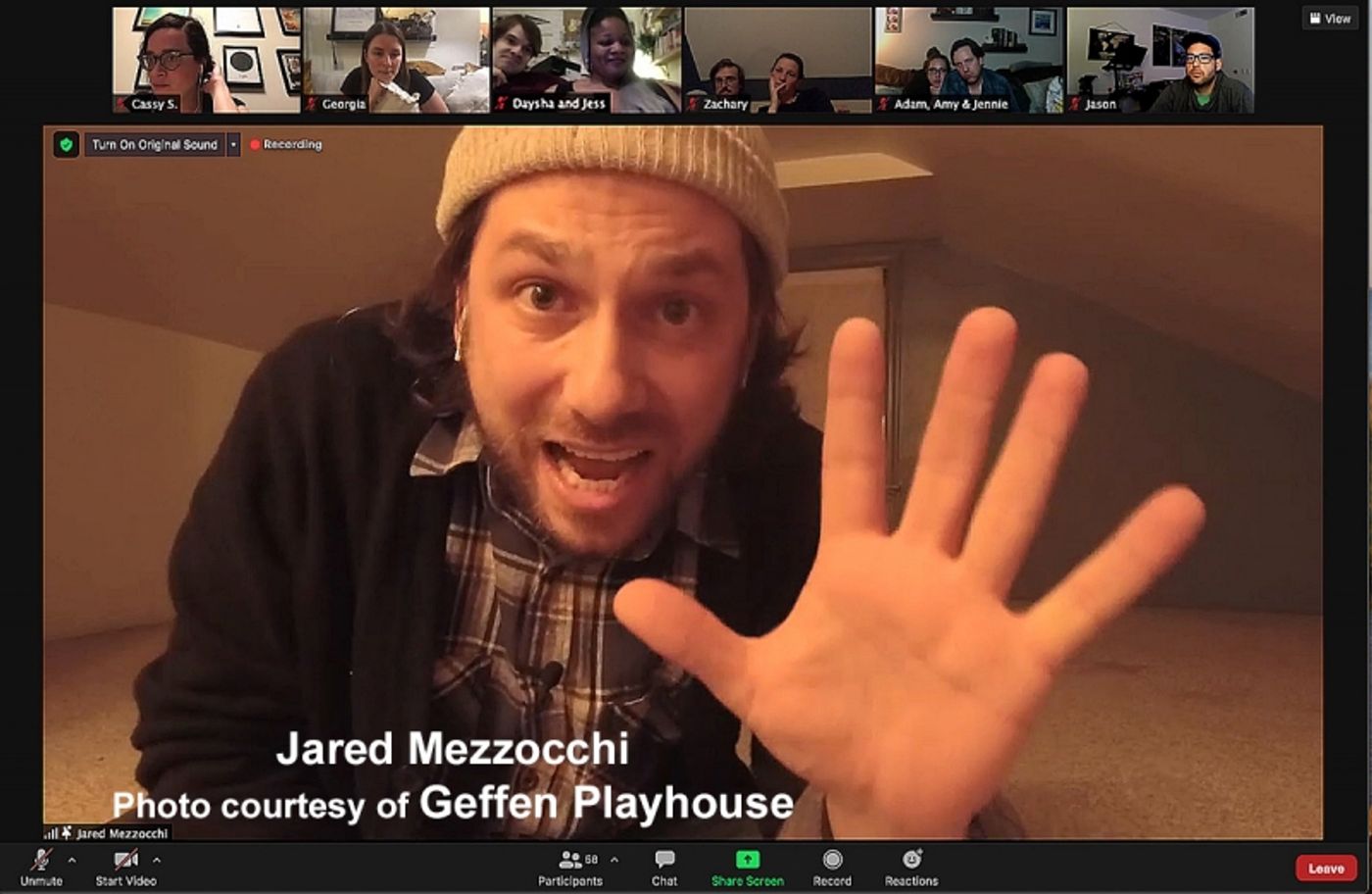 converse, experiment, and teach these skills to a group of inquisitive artists. This organically led me to create Virtual Design Collective, so that I could conduct business with organizations that were seeking consultancy, assistance, and design for online performance. At this point, we are still evolving and establishing what it is that we actually do. This is not a statement of weakness, but of strength. For the past year, we have been a barometer to the needs of our community and this mission won't change. It is, however, an adaptive mission. We have about twenty artists within the collective. I hope ViDCo helps inspire our community to experiment, take risk, and expand our understanding of digital performance making while also providing opportunities to gather and collaborate in unique ways. I mean, we've designed theater, concerts, film series, a funeral, web portals, and community panels. We've worked with Arena Stage, BAM, Geffen, TheaterWorks Hartford, Ars Nova, The Ghostlight Project, The Biden Campaign, Brandeis University, Playmakers Rep, and beyond. Sure, we are a technology collective - but actually, our mission is to advance the form and support our cultural and civic duties as theater practitioners.
converse, experiment, and teach these skills to a group of inquisitive artists. This organically led me to create Virtual Design Collective, so that I could conduct business with organizations that were seeking consultancy, assistance, and design for online performance. At this point, we are still evolving and establishing what it is that we actually do. This is not a statement of weakness, but of strength. For the past year, we have been a barometer to the needs of our community and this mission won't change. It is, however, an adaptive mission. We have about twenty artists within the collective. I hope ViDCo helps inspire our community to experiment, take risk, and expand our understanding of digital performance making while also providing opportunities to gather and collaborate in unique ways. I mean, we've designed theater, concerts, film series, a funeral, web portals, and community panels. We've worked with Arena Stage, BAM, Geffen, TheaterWorks Hartford, Ars Nova, The Ghostlight Project, The Biden Campaign, Brandeis University, Playmakers Rep, and beyond. Sure, we are a technology collective - but actually, our mission is to advance the form and support our cultural and civic duties as theater practitioners.
You've worked in theatres all across the U.S. and Europe. Do you find you need to tweak your projection designs according to the locale of the theatre? Or are most of your visuals universal?
I think it's vital to embrace localism. I think as artists of live performance, we cannot sustain our work without absorbing the local needs of the community. I think every creation we invest in is a hope to push the needle culturally. While I don't think I shapeshift who I am as an artist depending on where I create, I do think it's 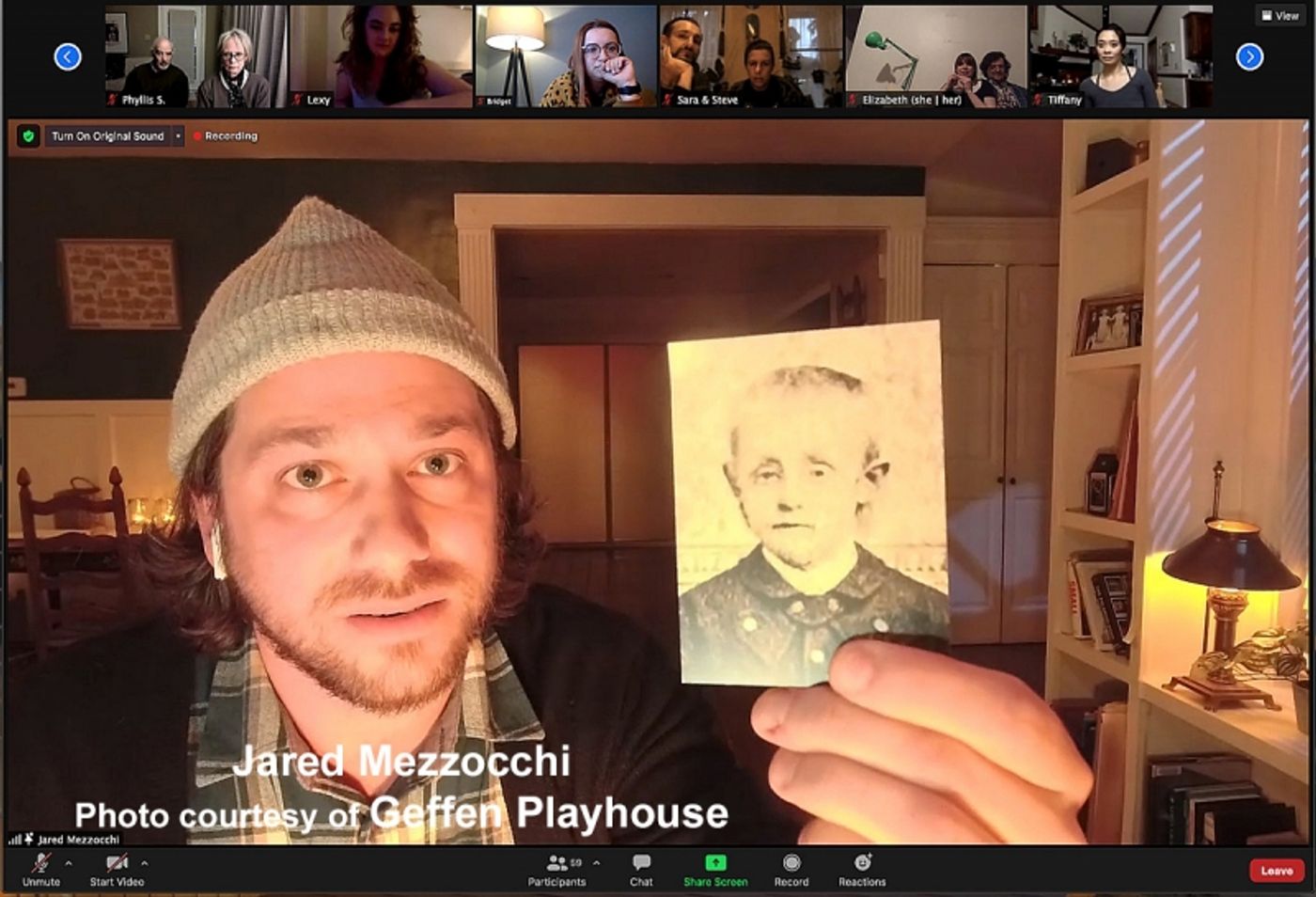 imperative to be a good listener to the needs of the community you serve. This is a visual statement as much as it is a cultural statement. The needs of every community must be met uniquely. Directors, actors, writers and designers all must meet this need artistically, civically, culturally, and gracefully.
imperative to be a good listener to the needs of the community you serve. This is a visual statement as much as it is a cultural statement. The needs of every community must be met uniquely. Directors, actors, writers and designers all must meet this need artistically, civically, culturally, and gracefully.
Thank you again, Jared! I look forward to visiting SOMEONE ELSE'S HOUSE.
For viewing tickets for the virtual performances of SOMEONE ELSE'S HOUSE through June 5, 2021; log onto www.geffenplayhouse.org
Videos

